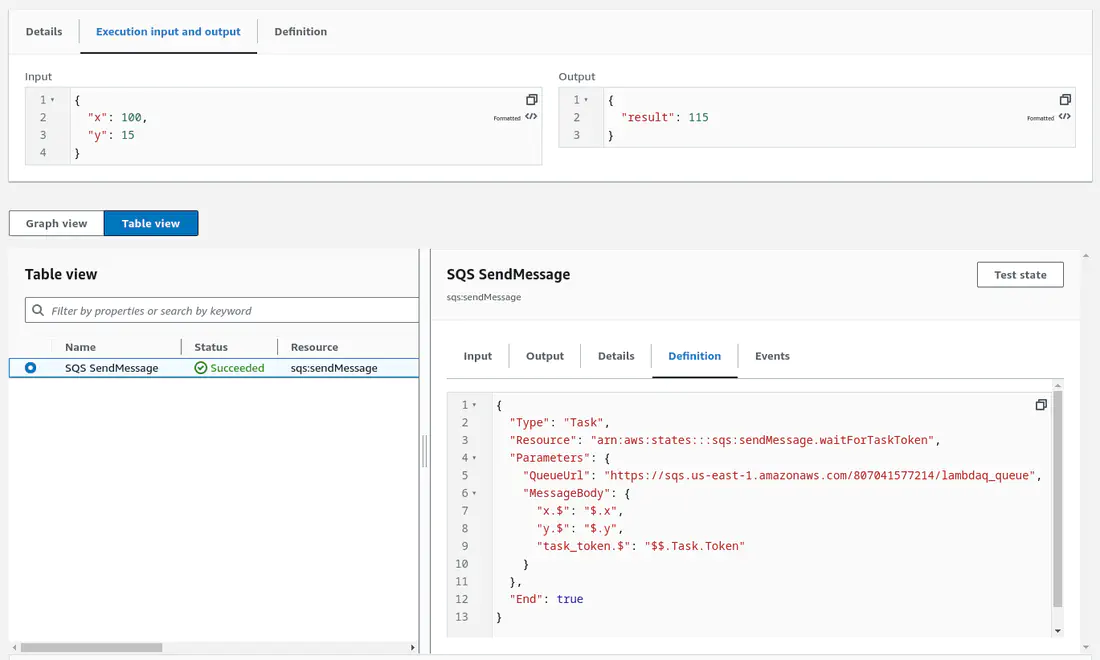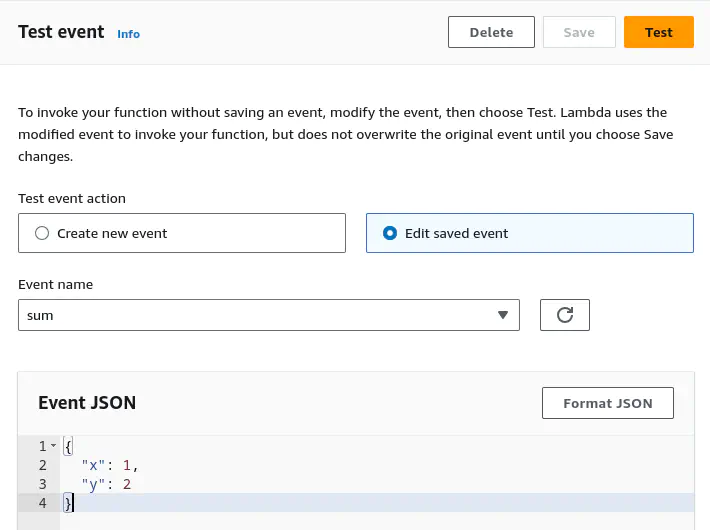Writing AWS Lambda functions behind SQS with LambdaQ
By Cariad Eccleston • 👋 @cariad@indiepocalypse.social • ✉️ cariad@cariad.earth
I got bored of writing the boilerplate. My team got bored of reviewing it. No more!

I write a lot of Amazon Web Services Lambda functions, and the vast majority are invoked asynchronously by messages on SQS queues published by Step Functions state machines, rather than directly and synchronously.
It just makes more sense to me to have functions pop messages as-and-when they’re ready, rather than having the state machine try, fail, back-off and repeat, right?
The downside, naturally, is the boilerplate in each function for parsing SQS
events and finalising each task’s success or failure with calls to the Step
Functions SendTaskSuccess and SendTaskFailure APIs.
That’s not so bad, though. The work I enjoy a little less is migrating Lambda functions from synchronous to asynchronous invocation.
When a function is invoked directly, the event is the message; it’s a one-shot task that returns its single response. When a function is invoked via an SQS queue, though, the event is a collection or one-or-more SQS records, each containing a serialised message that must be responded to via Step Functions' APIs. And updating a function’s entrypoint to support both conditions while state machines migrate from synchronous to asynchronous invocation is… well, it’s a living. But I’m bored of writing the same boilerplate every week.
And that’s why I wrote LambdaQ!
LambdaQ
LambdaQ (“lambda-queue”) is a Python package that helps you write Amazon Web Services Lambda functions that can be called either directly or by messages on SQS queues published by Step Functions state machines.
The package takes care of the event handling, message deserialisation and API calls, while you focus on writing decoupled, testable message-handling code.
Time for an example, right?
Example
Let’s say you want to write a Lambda function that receives two numbers and returns their sum.
We’ll start by defining dictionaries for the message (i.e. the numbers to sum) and the response (i.e. the sum):
from typing import TypedDict
class _Inputs(TypedDict):
x: int
y: int
class Inputs(_Inputs, total=False):
task_token: str
class Sum(TypedDict):
result: int
In this case, the task_token key is optional because it’ll be present only
when the function is called asynchronously by a state machine.
With those strongly-typed inputs and outputs in place, we can write a message handler:
from lambdaq import Metadata
def perform_sum(message: Inputs, metadata: Metadata) -> Sum:
return Sum(result=message["x"] + message["y"])
The message handler’s signature is important; it must accept a message and a
lambdaq.Metadata instance. In this case, our message is an Inputs instance
and we return a Sum instance.
The message handler doesn’t care whether the message came from direct invocation or via an SQS queue. It doesn’t care if the response will be returned directly or via a Step Functions API call. It doesn’t care if its exceptions will be re-thrown to the caller or handled and returned to the state machine via its APIs. It’s just a decoupled, testable function.
Finally, we give the Lambda function an entrypoint that calls
lambdaq.handle_event:
from lambdaq import handle_event
def main(event: Any, context: Any) -> Sum | None:
return handle_event(
event,
perform_sum,
"task_token",
)
The three arguments for handle_event are the invocation event, a reference to
the message-handling function and the task token’s key. The function will
return a response when called directly, or None when called via a queue.
And that’s it!
If we invoke the function directly then we get the sum back immediately:


…and if a state machine invokes the function asynchronously via an SQS queue then the response is returned when it’s good and ready:

And if your queue is configured to buffer and batch messages to Lambda functions, LambdaQ handles that too and calls your message handler for each one.
Installation
LambdaQ v1 requires Python 3.10 or later and can be installed from PyPI.
pip install lambdaq
The code is released under the MIT licence at github.com/cariad/lambdaq, too.
Have fun!